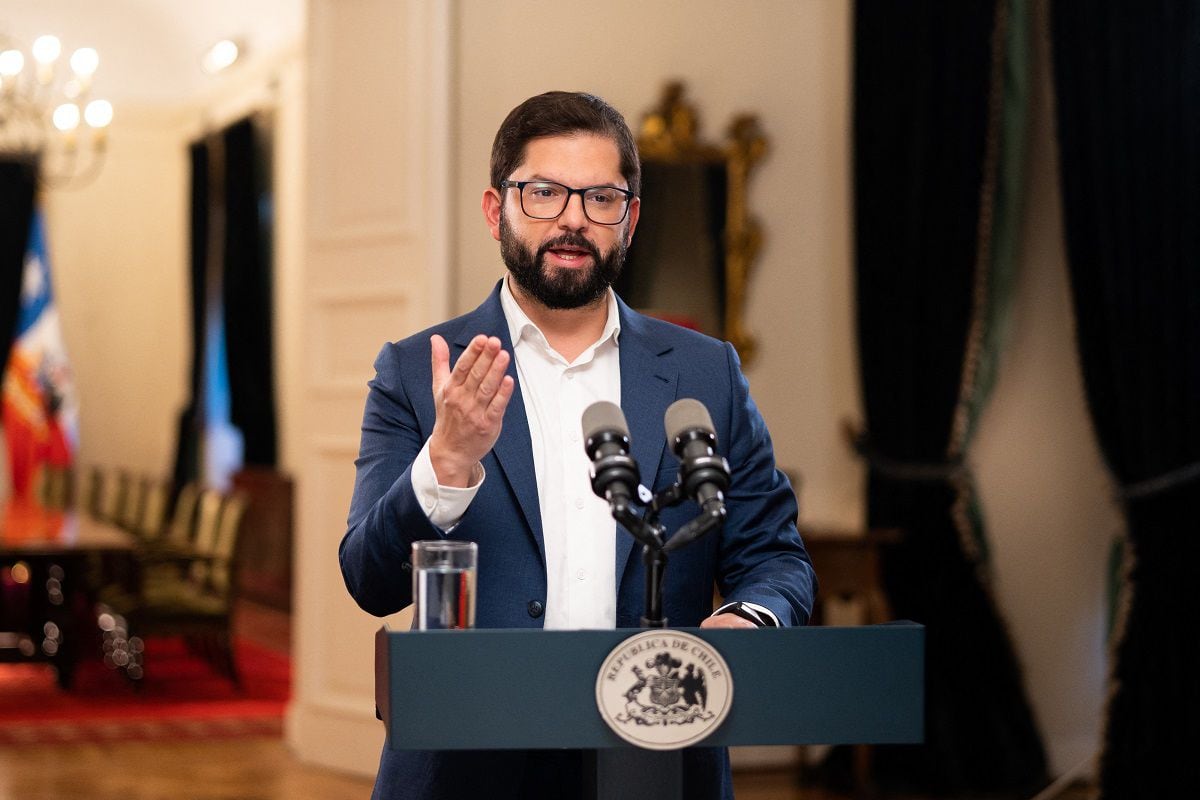
The speech of the Chilean president, gabriel boriclast week to seek greater state control over the lithium looms as the latest test for the resource nationalism embraced by the rising left in Latin Americabut which has proven difficult to implement in practice.
While the former student protest leader’s proposal to give the state a majority stake in strategic lithium projects faces an uncertain path, his mere announcement rocked one of the most lucrative corners of the mining industry.
The 37-year-old Boric’s plan also highlights longstanding regional tension between governments’ desire to control their coveted raw materials and future profits versus their continued need for capital and private sector insights.
“In Chile, it will probably be the most significant case”said Carlos Pascual, a senior energy executive at IHS Markit, referring to other regional efforts to exercise greater government control over the mineral considered key to a greener future and citing Chile’s role in the global metals market as the largest producer of copper and second in lithium.
“This is seen as an opportunity to secure direct revenue for the state just when many countries decided to make the decision to nationalize oil in a different era.”, he added.
Last year, Boric’s leftist peer in Mexico, Andrés Manuel López Obrador, enacted a radical nationalization of lithium and then ordered the creation of a new state-owned company, LitioMx, despite the fact that the country is still a long way from selling its first shipment of the ultralight metal.
Lithium is in high demand for batteries for future electric vehicle fleets in the global transition to green energy.
López Obrador, who reveres the country’s historic 1938 nationalization of oil, justified his policy as its logical extension.
He invoked past abuses at the hands of colonial masters and more recent corporate titans, arguing that only government can prevent exploitation and ensure a wide distribution of benefits.
Around the world, the nationalization of oil companies in particular has proven attractive as a means of cashing in on valuable commodities and boosting development, even as competitive commodity markets often see more production and innovation.
Illustrating the challenges of starting from scratch, a Mexican official familiar with the government’s plans downplayed the possibility that the new state lithium miner could achieve production anytime soon, instead touting a different option.
“LitioMx could boost the value chain with imported lithium”the official told Reuters.
Asked for comment, a spokesperson for the Mexican Ministry of Energy emphasized that LitioMx remains focused on finding and extracting lithium, and while future imports could be considered, “It’s still too early for that.”
Unsurprisingly, miners are less than enthusiastic about the statist leanings of López Obrador and Boric, who stressed that under their plan, privateers could partner with a yet-to-be-created state firm, but only as minority shareholders.
“It is a brave bet to ask an investor to prefer an uncertain marriage with a state-owned company and a minority stake risking capital and technology instead of just flying solo”said Armando Ortega, who chairs the executive committee of Baramin, Mexico’s largest producer of barite, a mineral used in oil extraction.
statistical trend
Chile and its neighbors Bolivia and Argentina are believed to have more than half of the world’s extractable lithium in salt flats that normally use evaporation pools to concentrate the metal, although new technologies are also being developed.
Bolivia’s ruling socialists have also insisted that the state take the driver’s seat in unlocking its huge but untapped reserves, though it is aided by partners such as Chinese battery giant CATL.
Peru, a copper mining powerhouse, could have followed a similar approach to Boric’s to boost its lithium development had former president Pedro Castillo not been ousted late last year.
The leftist Castillo won a narrow victory in 2021, pledging to nationalize the ultralight metal along with other minerals, including copper, but later moderated his position, leaving the promise unfulfilled.
Iván Merino, who was Castillo’s first energy and mining minister, said in an interview Monday that, for now, Peru is watching from the sidelines as the trend of resource nationalism gains steam.
“As is becoming common, we will see history go by without participating in it”he claimed.
That leaves Argentina as an increasingly likely Latin American destination for new lithium private equity in the exception of the trend.
“Not so much because Argentina is doing its homework, but because the neighborhood is in turmoil and the world is pulling very hard on lithium demand”said Santiago Dondo, former Vice Minister of Mining.
A strong pipeline of lithium projects in Argentina, the world’s fourth-largest producer, is already close to coming online.
Dondo considered that the four political parties of the main opposition coalition to the outgoing leftist president Alberto Fernández recently voted in favor of supporting private companies as the main engine of the sector before this year’s elections.
He noted that local control over mining in three key northwestern provinces of Argentina managed to help thwart any move toward nationalizing lithium nationally a couple of years ago, boosting investor confidence.
But Dondo is still concerned that lithium could be eclipsed by other battery technology.
“We do not know how many years this giant window of opportunity will have, because the changes in the energy transition are becoming faster and fasterhe mused.
Source: Reuters
Source: Gestion
Ricardo is a renowned author and journalist, known for his exceptional writing on top-news stories. He currently works as a writer at the 247 News Agency, where he is known for his ability to deliver breaking news and insightful analysis on the most pressing issues of the day.











